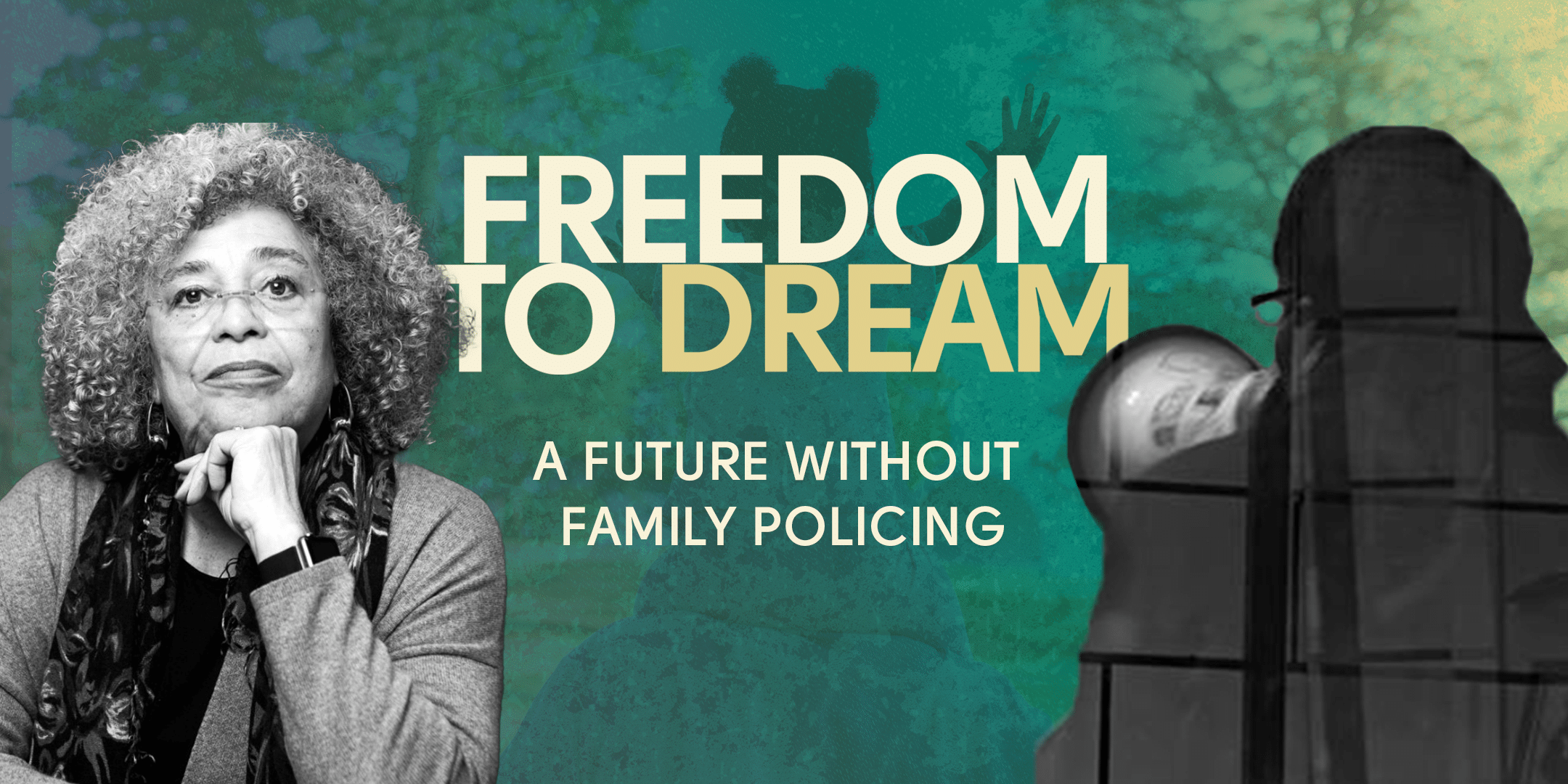How We endUP Convening 2022
October 17 – 18, 2022
October 17 – 18, 2022

We are so thankful for the insights, questions, and radical creativity that you brought to this virtual gathering. The video recordings are now available for you to rewatch and share on our YouTube channel.
In this highly anticipated keynote conversation, Joyce McMillan of JMAC for Families asked big questions. Why must abolition be feminist, and why must feminism be abolitionist? Where do you draw your strength to continue doing this work after so much adversity? What can abolition of the family policing system learn from work already done by other abolitionist organizations?
Davis’ advice: Don’t try to go up against the whole system as an individual. Create a collaborative approach with others who are like-minded and want to transform these conditions.
This panel moderated by Lexie Grüber-Pérez featured the work of upEND contributors Victoria Copeland, Maya Pendleton, Brianna Harvey, and Emma Peyton Williams. They summarize their collection of essays “Help is NOT on the Way” published earlier this year and dig deeper. What is carceral logic, and racialized surveillance, and what new logics do we need to ensure the safety of children and families? Watch this replay to learn more.
Healing justice practitioner Richael Faithful created a dedicated space to prepare our hearts, minds, and bodies for imaging and creating a “new logic” for the world we will build with our freedom dreams. This session is worth rewatching over and over as you need it.

“Political transformation must be accompanied not just by spontaneous and organized expressions of unrest and risk, but by an explosion of mass creativity,” voiced Mariame Kaba in her interactive keynote presentation.
Then, she invited the audience into quiet moments of reflection and creativity: What does a commitment to policing cost us? What is a way to address harm to children that doesn’t rely on policing? Are you carving out spaces for collective imagining in your communities?
Mariame Kaba also made the following resources available to convening attendees.
Video: A Day in 2030
Video: Hen March Outlaws Cops
Video: M4BL Presents Black Futures: An Ode to Freedom Summer
Art: Abolition Imagination Cards
Finally, she shared, “I really think that we have to just try shit. People hear me say that all the time. We have to be open to experimentation. We have to fail often. We have to learn the lessons from those failures and try again. We cannot be so incredibly afraid of trying stuff. We are going to make a bunch of mistakes anyway. So why not try?”
Maya Pendleton moderated a conversation with Angela Olivia Burton, Melody Webb, and Reiko Boyd. They discussed their journeys into abolition, the work they are doing now in dismantling family policing and supporting families, and their vision for the future. Melody Webb summed up her vision like this: Abundance, joy, and dignity.